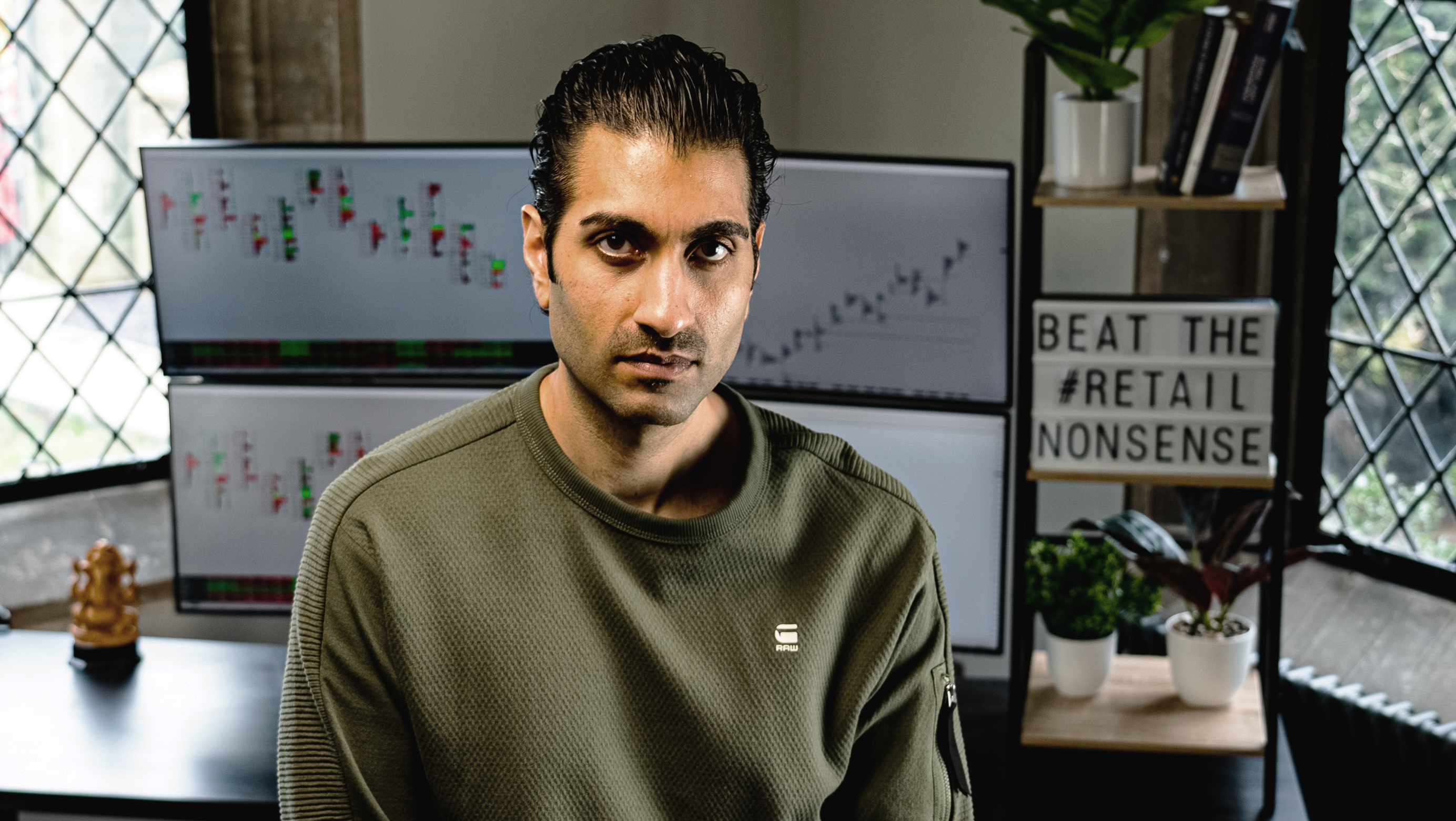The right market can make or break your trading career. We asked ex-Barclays trader and G7FX founder Neerav Vadera how to make use of the markets for the most profit.
My name is Neerav Vadera, although I’m best known online as NV. I’m an institutionally trained trader with over sixteen years of experience, trading both privately and for one of the largest trading firms in the world. I currently run G7FX, a professional education programme designed to teach new traders the same techniques I found success with.
During my time at Barclays Investment Bank, I traded extensively in the Forex and Interest Rate Markets. I then went on to work with some of the world’s leading Proprietary Trading Firms to trade the Futures markets, primarily focusing on crude oil and the S&P 500.
In this article, I’ll explain the distinction between the way the two markets operate, and which market you should trade in as a beginner retail trader, and how to move on from there.
Should I choose Forex?
The foreign exchange market (Forex or FX) is by far the biggest market in the world. Its potential for profit is immense, as is the risk you take when trading with it – particularly so for retail traders.
Investment banks and institutions trade over-the-counter (OTC) with each other on Forex, typically through messaging services kept out of the public eye. This gives them exclusive insight into the market’s operations.
Unfortunately, retail traders have far less information available to them. This is a huge obstacle that prevents them from having the knowledge they need to make smart, profitable decisions.
Many new traders believe technical analysis will let them overcome this lack of information, as it is based on using set shapes to predict future movements. This is not the case; technical analysis has absolutely no evidence behind it, with most academics considering it pseudoscience. When I worked at Barclays, technical analysis was never used, and the same is true for all other world-class trading firms.
That does not mean you can’t ever use Forex, however! It’s simply more advanced and has much less visible volume, often requiring the use of algorithmic trading. It’s important you have the right know-how going into Forex, and one of the best ways to get practice and information is with the Futures market. This is something I focus on heavily in the G7FX Programme.
Should I choose Futures?
From a retail trader’s point of view, the Futures market has one big advantage over Forex: the exchange. The exchange works as a middleman, collecting all the data that’s hidden on the Forex and providing full access to everyone’s transactions. It doesn’t matter if you’re a small trader or a huge firm – everyone is on equal footing.
HFT algorithms, prop firms, and hedgers are the biggest players in the Futures market. Because you can see all of the choices they’re making, you can make a far more informed investment decision. You can use data like volume profiles to examine past and present actions and realistically predict future moves, with a lot more accuracy than you would have on the Forex market.
The Futures market is fantastic for trading in markets with a lot of visible volume like the two I personally focus on, crude oil and the S&P 500. These markets are the focus of the education offered by the G7FX Institutional Courses.
What are my other options?
If you don’t want to trade in Futures – perhaps the contracts are too big, you’re already comfortable with your retail trading platform, or any other reason – Futures can still be an incredibly useful tool.
When prices on Futures go up, prices on your retail platform go up too. Therefore, the information offered by the Futures market will help with your trading, even if you’re using a completely different platform.
With a cheap institutional platform, you can easily access data like order flow. You can do your analysis on the Futures market, then switch back to your retail platform of choice afterwards.
You can also trade Forex using Futures. However, it’s a very small, very advanced market, so I would recommend waiting until you are consistently successful on institutional markets (such as the stock index) first. You should be confident you know exactly what you’re doing, so you can minimize risk as much as possible.
Conclusion
Both Forex and Futures offer big potential earnings, but due to Forex’s volatility, I strongly recommend retail traders start with Futures.
It all comes down to having the right knowledge. The Futures market has the significant advantage of the exchange, which allows you to make more informed decisions. You can use the data it provides on the Futures market itself, on your preferred platform, or even on Forex once you’ve had enough experience. It’s truly a versatile platform, which is why I recommend every new trader begin with it.
If you’re interested in kickstarting your trading career with a high-quality education, check out the G7FX training programme! Designed to mirror the kind of training offered by the most profitable trading firms in the world, the programme will teach you the best strategies for navigating the markets and maximising profit. It’s currently bundled at a discounted price, so there’s no better time to invest in your future career as a full-time trader.
Media Contact
Company Name: Authority Sharks
Contact Person: Matthew Fraser
Email: Send Email
Phone: 6478192721
Country: United States
Website: authoritysharks.com

